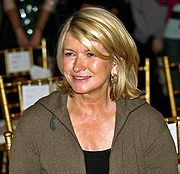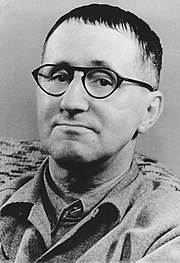Bertolt Brecht's Human Design Chart
3/5 Mental ProjectorGerman playwright and poet, one of the leaders of the “epic theatre movement.” He wrote his first prize-winning play while at Munich University from 1917-1921, and directed his first play production on 18 March 1924. As a poet, he showed great mastery and forceful simplicity. Brecht’s importance to 20th Century theater cannot be overstated. His operas and plays champion alienation the way that Kafka epitomizes anxiety. He combines text, balladry, stagecraft, imagery, movement and spoken word in a way now associated with performance art. His “Three-penny Opera” is familiar to every patron who has ever recognized theater as an art form.
A Marxist, a vegetarian, a genius and a contradictory figure, he was also considered an opportunist with an all-too-convenient ability to temporize. Despite his purposely shabby dress, unwashed stench, rotting teeth and icy persona, Brecht was some sort of modern Mesmer, able to hypnotize almost everyone he met into doing his bidding. He was considered a virtuoso in the bedroom, keeping regular revolving mistresses. When he fled Nazi Germany, he had not only his family but two other women, both of whom wrote large amounts of his work according to his specifications. Some of his major works may contain as little as 10% of his actual writing, but he served as a brilliant editor.
The saddest case – and most revealing of his character – is the story of Margaret Steffin, a young German writer from the provinces who had the misfortune to fall under Brecht’s spell at an early age. She was almost single-handedly responsible for “Courage” and “Stezuan,” as well as “Galileo” and at least four other major plays, a novel, and countless poems and stories, all published under Brecht’s name. He was not able to read the source material in French for the works, and the manuscripts are all in Steffin’s handwriting. Suffering from TB, Steffin died alone in a Moscow hospital ward after arranging for Brecht’s safe passage to America. He mourned for four days then promptly swindled her family out of her royalties and took her inheritance. While Brecht became a millionaire, secretly depositing thousands of gold marks in a Swiss bank account, Steffin’s family were left to subsiding on their meager income.
He was a Communist at least until the mid-1930s when Stalin began to shoot intellectuals by the thousands. After Hitler came to power in 1933, his work was banned in Germany. Brecht left his homeland and settled in Denmark with his wife, the actress Helen Weigel, and their two children, Stefan and Barbara. In 1939, after the fall of Czechoslovakia, they moved to Sweden; in 1940 with the invasion of Norway, to Finland, and in 1941, to California. Settling in the Hollywood area, he struggled to write film scripts but with not much success. He hated the genre and complained with his fellow artist-intellectuals that there was more to life than a weekly check from L.B. Meyer. “I felt an exile from my era,” he wrote. After the Allied victory, they moved to Switzerland and then to East Germany in 1948, where he remained until his death.
He wrote most of his best work in exile, “The Good Woman of Szechwan,” “Galileo,” “Putila,” “Mother Courage.” Along the way, he seduced everyone he met with his charisma, for fame, attention, favors, money, sex, all the while that he unscrupulously rode roughshod over everyone, cheating and using them. He once said, “What I don’t like to admit is that I myself have contempt for the unfortunate.”
Brecht died on 14 August 1956, Berlin, of a heart attack at the age of 58.
Link to Wikipedia biography
Discover More Famous People
Browse and analyze over 55,000 public figures and celebrities.
Ra Uru Hu
5/1 Manifestor
Martha Stewart
4/6 Manifestor
David Lynch
4/6 Generator
Barack Obama
6/2 Projector
Steve Jobs
6/3 Generator
Vladimir Putin
5/1 Manifestor
Kim Kardashian
3/5 Generator
Michael Jackson
1/3 Projector
Marilyn Monroe
6/2 Projector
Ariana Grande
2/4 Projector
Oprah Winfrey
2/4 Generator
Johnny Depp
2/4 ManifestorWhat is HumanDesign.ai and how does it work?
Curious what makes Bertolt Brecht tick? HumanDesign.ai instantly maps their exact birth data into a fully interactive clickable bodygraph chart, letting you hover or tap every center, channel, and gate for plain-language explanations. Bella, the platform’s built-in AI guide, adds context in real time, translating complex mechanics into everyday insights so you can see how Bertolt Brecht’s strengths, challenges, and life themes play out on-screen.
The same tools are waiting for you. Generate your own Human Design Chart in seconds, open a library of 2000+ suggested questions, and chat with Bella as often as you like to decode your design, daily transits, and even relationship dynamics.
Want to compare energies? Save unlimited charts for friends, family, or clients, then ask Bella to reveal compatibilities, composite patterns, or coaching tips, all in one conversation thread.
Start free with core features, or unlock our Personal and Pro plans for deeper dives: unlimited Q&A, celebrity chart search spanning 55,000+ public figures, white-label PDF reports, branded content generation, and a professional profile with built-in booking for practitioners. Whether you’re exploring your own potential or guiding others, HumanDesign.ai delivers an ever-expanding toolbox of AI-powered insights—no spreadsheets, no jargon, just clarity at your fingertips.
Ready to see yours? Signup for FREE today!

